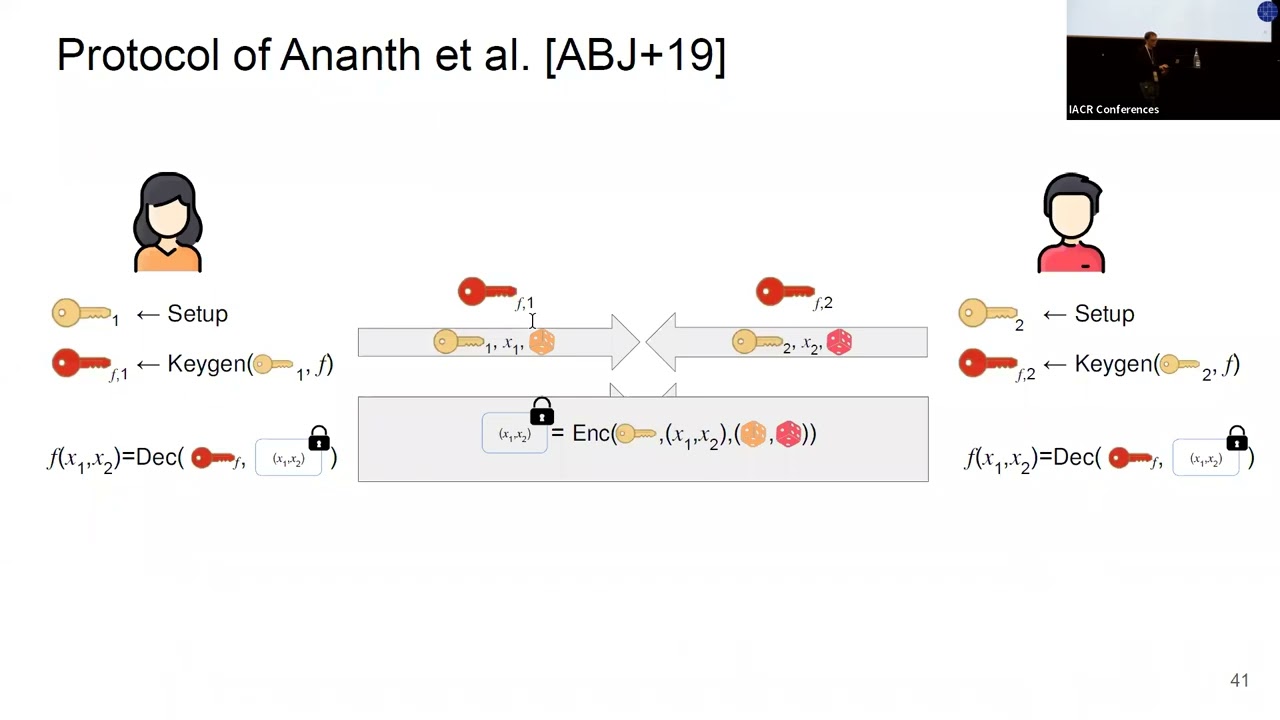Welcome to the resource topic for 2020/1437
Title:
Round-Optimal and Communication-Efficient Multiparty Computation
Authors: Michele Ciampi, Rafail Ostrovsky, Hendrik Waldner, Vassilis Zikas
Abstract:Typical approaches for minimizing the round complexity of multiparty computation (MPC) come at the cost of increased communication complexity (CC) or the reliance on setup assumptions. A notable exception is the recent work of Ananth et al. [TCC 2019], which used Functional Encryption (FE) combiners to obtain a round optimal (two-round) semi-honest MPC in the plain model with a CC proportional to the depth and input-output length of the circuit being computed—we refer to such protocols as circuit scalable. This leaves open the question of obtaining communication efficient protocols that are secure against malicious adversaries in the plain model, which we present in this work. Concretely, our two main contributions are: 1) We provide a round-preserving black-box compiler that compiles a wide class of MPC protocols into circuit-scalable maliciously secure MPC protocols in the plain model, assuming (succinct) FE combiners. 2) We provide a round-preserving black-box compiler that compiles a wide class of MPC protocols into circuit-independent— i.e., with a CC that depends only on the input-output length of the circuit—maliciously secure MPC protocols in the plain model, assuming Multi-Key Fully-Homomorphic Encryption (MFHE). Our constructions are based on a new compiler that turns a wide class of MPC protocols into k-delayed-input function MPC protocols (a notion we introduce), where the function that is being computed is specified only in the k-th round of the protocol. As immediate corollaries of our two compilers, we derive (1) the first round-optimal and circuit-scalable maliciously secure MPC protocol, and (2) the first round-optimal and circuit-independent maliciously secure MPC protocol in the plain model. The latter achieves the best to-date CC for a round-optimal maliciously secure MPC protocol. In fact, it is even communication-optimal when the output size of the function being evaluated is smaller than its input size (e.g., for boolean functions). All of our results are based on standard polynomial time assumptions.
ePrint: https://eprint.iacr.org/2020/1437
Talk: https://www.youtube.com/watch?v=T1tApPlZ9B4
Slides: https://iacr.org/submit/files/slides/2022/eurocrypt/eurocrypt2022/133/slides.pdf
See all topics related to this paper.
Feel free to post resources that are related to this paper below.
Example resources include: implementations, explanation materials, talks, slides, links to previous discussions on other websites.
For more information, see the rules for Resource Topics .
